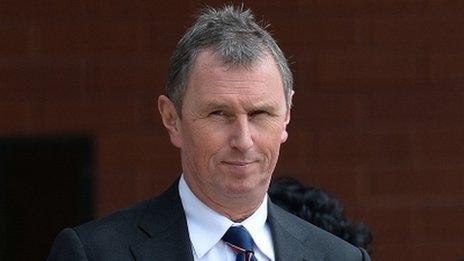Profile: Nigel Evans
- Published
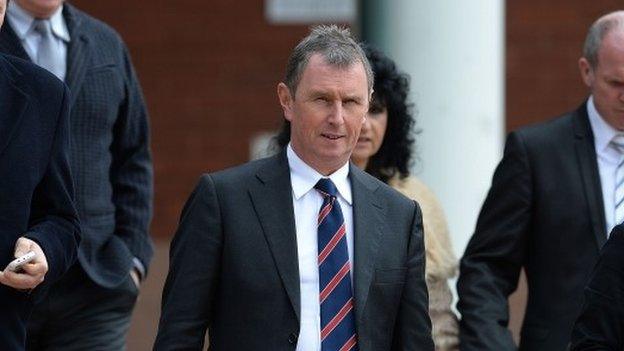
Politicians are often described, somewhat optimistically, as popular figures in Parliament, but in the case of Nigel Evans it is true.
There was profound shock on all sides when the allegations of sexual offences against the then deputy Speaker first surfaced - and no shortage of MPs and peers willing to speak up for him.
"Nigel Evans is a hugely popular figure, a very gregarious figure," said Cardiff North MP Jonathan Evans, at the time.
"He is friends, really, with everybody. Very unusually in politics, he is warmly regarded by all parties."
Among those offering character references, which were read out in court during his trial, were Labour MP Glenda Jackson, who described him as "courteous, humorous and respectful of opinions" and a "hard-working backbencher".
Labour's Ann Clwyd described him as "naturally sociable" and "invaluable" when dealing with foreign politicians as part of their roles on various committees.
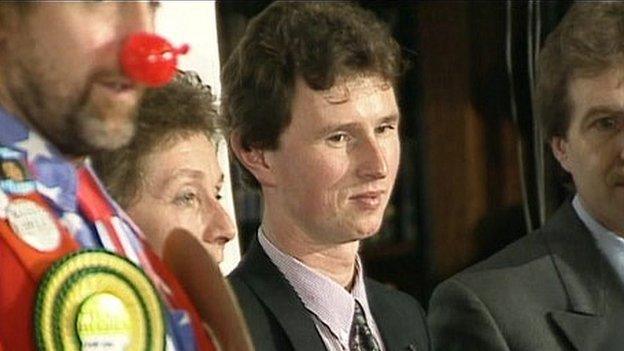
NIgel Evans lost to the Lib Dems in the 1991 Ribble Valley by-election
Conservative MP Eleanor Laing, who won the election to replace him as deputy Speaker, said he was a "well-respected, popular member of the House", who was "kind and thoughtful" and "known to be a gentle person".
Former MP Ann Widdecombe described him as a "truthful, considerate and kind individual," adding that "such qualities at Westminster are not universal".
There were similarly fulsome tributes from colleagues on Twitter when news of his acquittal broke.
"So pleased for my friend Nigel Evans today. A good man. Horrid experience to go through," wrote Stephen Crabb, Conservative MP for Preseli,, external Pembrokeshire.
"Nigel Evans was an excellent Deputy Speaker and a lovely man. So pleased he has been found not guilty," wrote Labour's Kate Hoey, external.
Mr Evans, 55, who resigned the Conservative whip and sat as an independent MP in the run-up to his trial, had earned his position in public life the hard way.
The son of a Swansea newsagent, he liked to say it was "God's little joke" that he had been born a Conservative in south Wales, a Labour heartland.
After joining the party at the age of 17, he got himself elected as a county councillor in his 20s and, by his early 30s had made two attempts to get into Parliament for Welsh seats.
He finally achieved his ambition in 1992, in the Lancashire seat of Ribble Valley, after losing out to the Liberal Democrats at a by-election in the seat a year earlier.
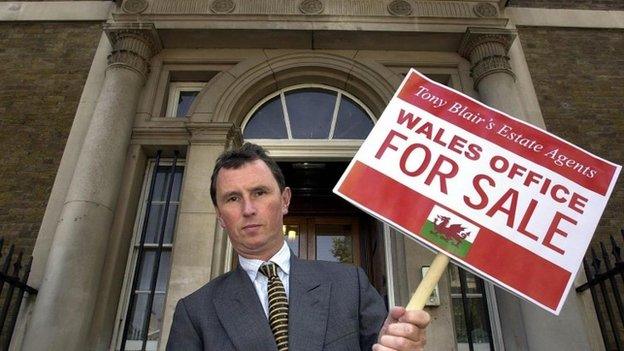
Evans opposed Tony Blair's decision to axe the post of Welsh secretary from the cabinet
He kept his links with Swansea, thanks to the family business, founded by his father.
John Major appointed him the Conservative spokesman for Wales after the party's 1997 election defeat and, in 2001, he was made shadow Wales secretary by Iain Duncan Smith.
He resigned from the post in 2003 when Michael Howard took up the leadership and decided not to include a Welsh affairs spokesman in his top team - a move criticised by Evans.
At the time he said he had been offered the chance to carry on as Welsh affairs spokesman outside the cabinet, but had decided to return to the back benches instead.
At the 2010 general election he retained his seat with a majority of more than 14,700 over his second-placed Labour rival.
He abandoned any frontbench ambitions and decided instead to seek the non-partisan role of deputy Speaker, one of the most coveted in the Commons.
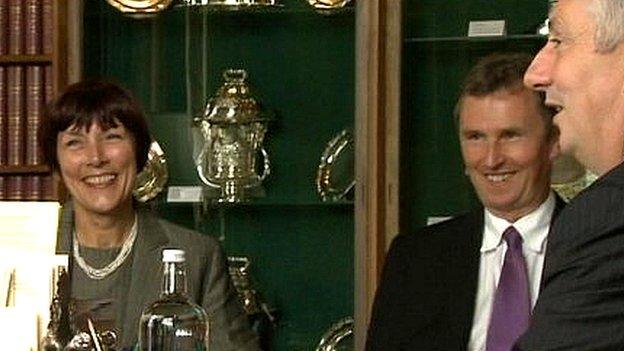
Evans - pictured with deputy Speakers Dawn Primarolo and Lindsay Hoyle - was a popular figure among colleagues
He was elected to serve as one of John Bercow's three deputies, who take it in turns to stand in for the Speaker, keeping MPs in order and selecting who gets to to speak in debates.
It was the first time those roles had been chosen by a ballot of MPs and Mr Evans won more votes than the other two contenders.
Mr Bercow described him as someone with a sense of humour, who knew the parliamentary rules and was "quick on his feet".
He won further admiration from colleagues when, a few months after his election, he announced he was gay, saying he was tired of "living a lie".
Launching a parliamentary group to help MPs be open about their sexuality, Mr Evans said he had been threatened with exposure by a former MP before deciding to come out as gay.
"With my background in south Wales, it was hard enough being a Tory, let alone being gay," he told the Mail on Sunday.
"It wasn't so much 'the only gay in the village' as 'the only Tory in Swansea'."
Mr Evans went to Dynevor School and to the city's university, where he graduated in politics, and was elected to the now-defunct West Glamorgan County Council in 1985.
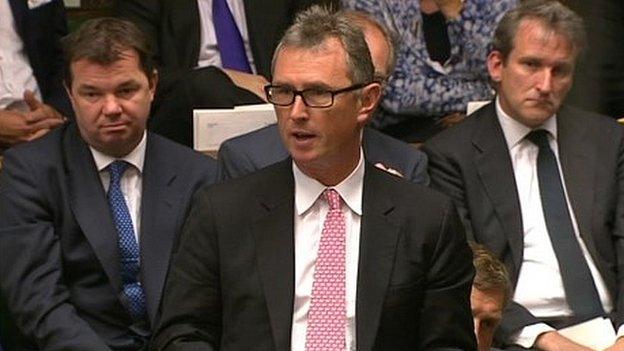
Evans gave an emotional speech to MPs when he stepped down as deputy Speaker
He became deputy leader of the council's Conservative group and remained a councillor until 1991, during which time he had already fought parliamentary elections in Swansea West and Pontypridd.
The esteem in which Mr Evans was held by his colleagues at Westminster was never more evident than when his boss, John Bercow, allowed him to make a personal statement to the House, when he stood down as deputy Speaker to fight the allegations.
His voice cracking with emotion, he told MPs: "This is clearly the most painful thing I have endured in my life, alongside the loss of my mother in 2009, and the loss of my brother earlier this year.
"Winston Churchill said, 'When you are going through hell, keep going.' Sage advice.
"And so I will see this through to the end with the support of the people who mean so much to me."
- Published10 April 2014
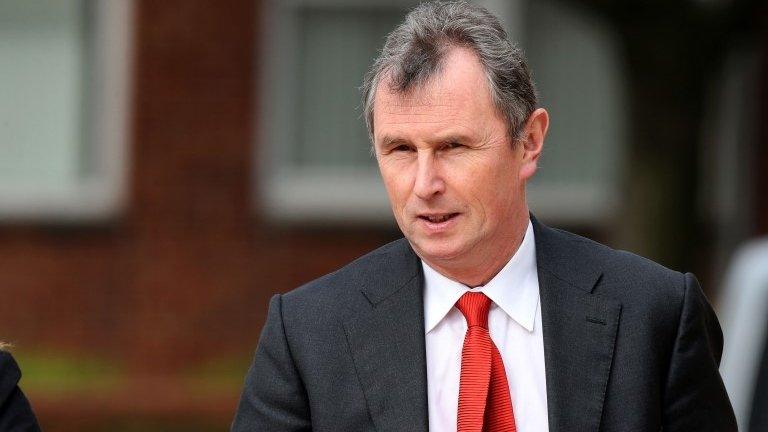
- Published10 April 2014
